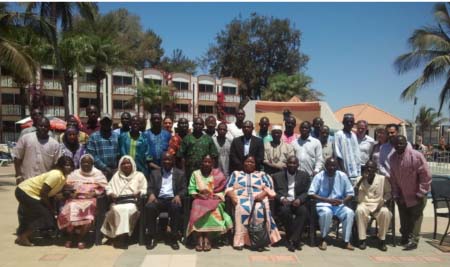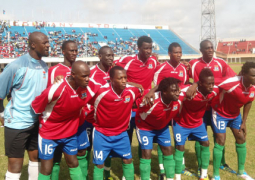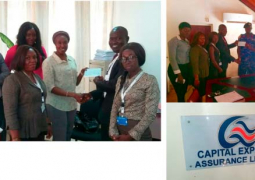
PS Touray was speaking at a two-day inception seminar of a proposed GEF-funded project community-based sustainable dry land forest management held at the Laico Atlantic Hotel in Banjul.
The two-day seminar, which brought various stakeholders including regional forestry officers countrywide, was organised by the department of forestry under the Office of the President in collaboration with Food and Agriculture Organization (FAO).
The project, according to organizers, would assist the government and other stakeholders to strengthen policy and institutional capacity for sustainable dry land forest management, as well as supporting community forestry legal ownership transfer to bring more dry land forests under sustainable management.
PS Touray said the causes are many and varied but principally attributed to rapid forest land use changes to other land uses and frequent fires in the forests.
He recalled that the land territory of The Gambia used to be covered by dense and almost impenetrable forests, adding that at that time, the forests were rich in both flora and fauna and also constituted the natural habitat for a variety of large mammals most of which are now either extinct or threatened.
This is quite worrying and therefore calls for concerted efforts on the side of government, the local communities and private entities to ensure the remaining forests are protected and conserved for now and posterity, he said.
The Government of The Gambia through the leadership of President Yahya Jammeh with support from technical and financial partners has made some giant strides towards forest landscape protection and management over the years, Mr Touray said.
He said the government had demonstrated its commitment to sustainable forest resources management through the formulation of appropriate forest policy framework, which takes into account the need to transfer forests to local communities to increase access and guaranty both tenure security and socio-economic benefits.In the same vein, he added, forest management strategies had also been developed since the mid-nineties, among them the community forestry management approach as embodied in The Gambia Forest Management concept.
He assured partners such as GEF and FAO that the implementation of the project would be done in a manner that would involve all relevant stakeholders by putting in place a very effective steering committee to guide the process of the implementation.
Touray thanked the FAO for its role in providing technical support to the department of forestry for the development of the project identification form, as well as the flow up, leading to its support to the forestry sub-sector over the years.
For her part, the FAO Country representative in The Gambia, Madam Perpetua Kastepa-Kalala, said the objective of the workshop was to launch the project preparation activities, share the project and obtain feedback inputs as well as establish plan to develop the required documents for submission to GEF.
This inception workshop is the beginning of the engagement process for the project formulation, the FAO Rep said.According to her, the project would build synergies with existing project with GEF support, the ANR platform and farm producer organizations supported through the ongoing forest and farm facility activities in The Gambia, among others. She thanked the FAO headquarters and the regional offices, who worked tirelessly in collaboration with the forestry department, to get the PIF approved in formulating “this very important project”.
Read Other Articles In Article (Archive)

Gambia has no knowledge of G. Bissau ex-army chief, minister
May 29, 2012, 1:32 PM



